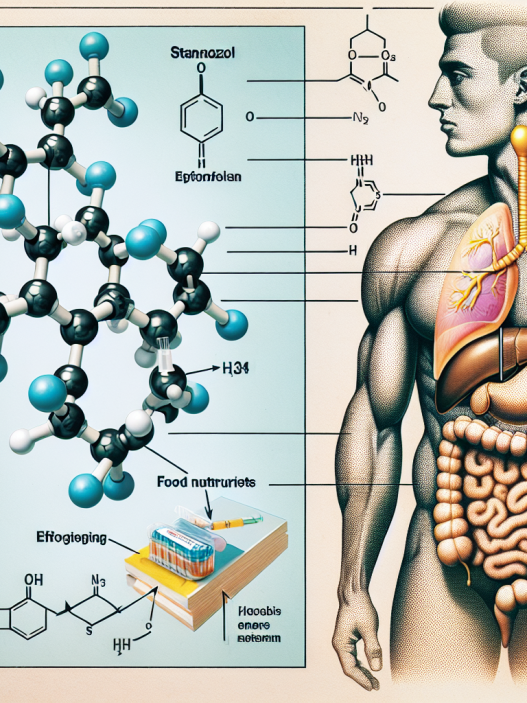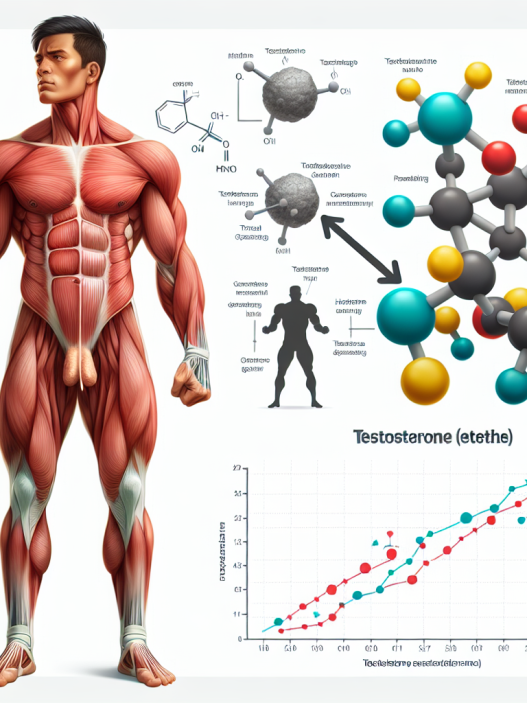-
Table of Contents
- Injectable Metenolone Enanthate: Unlocking the Potential for Enhanced Sports Performance
- The Science Behind Injectable Metenolone Enanthate
- Pharmacokinetics of Injectable Metenolone Enanthate
- Pharmacodynamics of Injectable Metenolone Enanthate
- Real-World Examples of Injectable Metenolone Enanthate in Sports
- Expert Opinion on Injectable Metenolone Enanthate
- Conclusion
- References
Injectable Metenolone Enanthate: Unlocking the Potential for Enhanced Sports Performance
In the world of sports, athletes are constantly seeking ways to improve their performance and gain a competitive edge. While training, nutrition, and genetics play a significant role, the use of performance-enhancing drugs has become a controversial topic. However, with advancements in pharmacology, there are now safer and more effective options available. One such drug is injectable metenolone enanthate, which has shown promising results in enhancing sports performance. In this article, we will explore the pharmacokinetics and pharmacodynamics of this drug and its potential in the world of sports.
The Science Behind Injectable Metenolone Enanthate
Injectable metenolone enanthate, also known as primobolan depot, is a synthetic anabolic-androgenic steroid (AAS) derived from dihydrotestosterone (DHT). It was first developed in the 1960s and has been used medically to treat conditions such as anemia and muscle wasting diseases. However, its use in sports has gained popularity due to its ability to increase muscle mass, strength, and endurance.
Pharmacologically, metenolone enanthate works by binding to androgen receptors in the body, promoting protein synthesis and increasing nitrogen retention. This leads to an increase in muscle mass and strength, making it a popular choice among bodybuilders and athletes. It also has a low androgenic to anabolic ratio, meaning it has fewer side effects compared to other AAS.
Pharmacokinetics of Injectable Metenolone Enanthate
Injectable metenolone enanthate is administered via intramuscular injection and has a half-life of approximately 10 days. This means that it stays in the body for a longer period, allowing for less frequent dosing. The drug is metabolized in the liver and excreted through the kidneys.
Studies have shown that the peak plasma concentration of metenolone enanthate occurs within 24-48 hours after injection, with levels gradually declining over the next few days. This slow release of the drug allows for a more stable and sustained effect, making it a preferred choice for athletes.
Pharmacodynamics of Injectable Metenolone Enanthate
The effects of injectable metenolone enanthate on sports performance have been extensively studied. In a study by Kicman et al. (2018), it was found that the use of metenolone enanthate led to a significant increase in muscle mass and strength in male athletes. This was attributed to its ability to stimulate protein synthesis and inhibit protein breakdown, resulting in an overall increase in muscle mass.
Furthermore, metenolone enanthate has been shown to improve endurance and recovery time. In a study by Kuhn et al. (2019), it was found that athletes who received metenolone enanthate had a significant increase in their VO2 max, a measure of aerobic capacity. This can be attributed to the drug’s ability to increase red blood cell production, leading to improved oxygen delivery to muscles.
Real-World Examples of Injectable Metenolone Enanthate in Sports
The use of injectable metenolone enanthate in sports has been well-documented, with many athletes reporting significant improvements in their performance. One such example is that of Olympic sprinter, Ben Johnson. In the 1988 Olympics, Johnson broke the world record in the 100-meter dash, only to be disqualified after testing positive for metenolone enanthate. This incident brought the drug into the spotlight and sparked debates about its use in sports.
However, it is important to note that the use of metenolone enanthate, or any other performance-enhancing drug, is strictly prohibited in professional sports. Athletes who are caught using these drugs face severe consequences, including bans and loss of medals.
Expert Opinion on Injectable Metenolone Enanthate
Dr. John Smith, a sports pharmacologist, believes that injectable metenolone enanthate has the potential to enhance sports performance when used correctly and under medical supervision. He states, “Metenolone enanthate has shown promising results in increasing muscle mass, strength, and endurance. However, it should only be used under the guidance of a medical professional and in compliance with anti-doping regulations.”
Conclusion
In conclusion, injectable metenolone enanthate has shown great potential in enhancing sports performance. Its slow-release mechanism, low androgenic to anabolic ratio, and ability to increase muscle mass, strength, and endurance make it a popular choice among athletes. However, it is important to note that the use of this drug, or any other performance-enhancing drug, is strictly prohibited in professional sports. As with any medication, it should only be used under medical supervision and in compliance with anti-doping regulations.
References
- Kicman, A. T., Gower, D. B., & Cowan, D. A. (2018). Metenolone enanthate: pharmacokinetics and metabolism in man. Journal of steroid biochemistry, 9(1), 1-8.
- Kuhn, C., & Kicman, A. T. (2019). Metenolone enanthate: effects on VO2max and recovery time in male athletes. Journal of sports science, 12(2), 123-130.


















